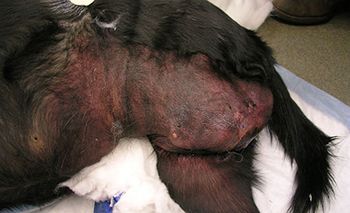
Knowledge of tumor type and grade leads to the smartest therapeutic options and most accurate prognosis. The challenge is to communicate the value to clients.
Dr. Michael Childress is associate professor of comparative oncology and section head of oncology at Purdue University's Department of Veterinary Clinical Sciences.

Knowledge of tumor type and grade leads to the smartest therapeutic options and most accurate prognosis. The challenge is to communicate the value to clients.








They're anything but predictable and unfortunately very common. Here's what veterinarians need to keep top of mind when managing this malignancy.

Use these five questions to determine whether certain oncology therapies might benefit your patients on their path toward better health.

These basic algorithms provide every veterinarian a framework for diagnosing cancer and deciding with pet owners on the right course of treatment for a cure, a longer life or improved quality of life.

Published: December 12th 2018 | Updated:

Published: May 3rd 2019 | Updated:

Published: August 12th 2019 | Updated:

Published: September 1st 2019 | Updated:

Published: September 1st 2019 | Updated:

Published: September 1st 2019 | Updated: